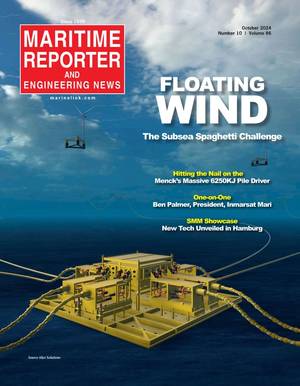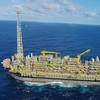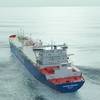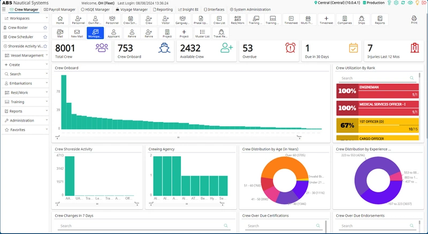Not only did most oil producing companies post increased income and revenues in the first quarter 2000, compared to 1999, but in some cases, the increases were record-setting. In fact, Conoco's first quarter was the best quarter in the company's 125-year history. Here is a capsulated report of several companies' earnings.
USX Corporation
USX-Marathon Group's net income adjusted for special items was $199 million in first quarter 2000, compared with a net loss adjusted for special items of $11 million in first quarter 1999.
The Marathon Group recorded first quarter 2000 net income of $254 million, which included a $55 million favorable aftertax gain on the sale of its 33.34 percent interest in the Angus/Stellaria development in the Gulf of Mexico. Net income in first quarter 1999 was $119 million.
Worldwide exploration and production (upstream) segment income totaled $309 million in first quarter 2000, versus $36 million in first quarter 1999. Domestic upstream income was $201 million in first quarter 2000, compared with $38 million in first quarter 1999.
In February, Marathon announced the delineation of its 1999 Camden Hills gas discovery, further establishing the presence of hydrocarbons. The well was drilled in 7,200 ft. of water in Mississippi Canyon Block 348, 140 miles southeast of New Orleans, La. Marathon is operator of this block with a 50.03 percent working interest.
Marathon was also high bidder on 13 blocks in the Gulf of Mexico Outer Continental Shelf (OCS) lease sale 175, announced on March 15, 2000. Subject to the award of these blocks, Marathon's total lease inventory position in the Gulf of Mexico would increase to 164 blocks, including 116 deepwater blocks.
ARCO
ARCO, which was acquired by BP Amoco in April, had first quarter net income of $617 million. In the 1999 first quarter, ARCO earned $165 million. Excluding special items, first quarter 2000 income from operations totaled $583 million, up from $172 million in the 1999 first quarter.
Increased crude oil and U.S. natural gas prices offset production declines in the first quarter. U.S. petroleum liquids realizations averaged $21.28 per barrel for the quarter compared with $7.17 per barrel last year. U.S. natural gas prices averaged $2.18 per thousand cubic feet (mcf) up from $1.60 per mcf last year.
Higher commodity prices and operating cost reductions resulted in ARCO's worldwide Exploration and Production operations earning $543 million after tax and before special items in the first quarter, up from $89 million after tax in the first quarter of 1999.
BP Amoco
BP Amoco p.l.c. reported its first quarter 2000 results. Replacement cost profit, before exceptional items, was $2.7 billion, after adjusting for special charges of $30 million. This is an increase of 256 percent on a year ago and 28 percent on the previous quarter. Exploration and Production replacement cost operating profit was again at a record level with oil and gas prices up significantly on the first quarter and also higher than in the fourth quarter of 1999. The result also reflected cost improvements over both quarters.
Average oil realizations were up on a year ago by around $14 a barrel and natural gas realizations by 32 cents/mcf. There were also benefits from cost savings and lower exploration expense. Lower liquids volumes reflected the effect of divestments and the decline in mature fields in Alaska.
Gas volumes were up four percent with additional production from Trinidad. The adjusted result was up 23 percent over the fourth quarter of 1999. The stronger oil price was again a significant factor with realizations up around $2 a barrel. Gas realizations were at a similar level while cash costs were lower. These factors more than offset the effect of slightly lower liquids and lower gas volumes primarily in Trinidad, where domestic supply was affected by a plant shut-in.
The outlook is good, as crude oil prices have responded to increased OPEC production; and are expected to remain broadly in the current trading range, though volatile. Natural gas prices are expected to remain strong over the year and remain above the historical trading range. Downstream, marketing margins are expected to stabilize after the recent increase and subsequent fall in oil prices. Refining margins are expected to be similar to the first quarter's but show considerable volatility.
Conoco
Conoco announced the best quarterly earnings in its 125-year history. First quarter net income before special items was a record $391 million, up 371 percent compared to the first quarter of 1999, underpinned by strong prices and higher production. Net income was a record $399 million versus $83 million last year, and up 24 percent over strong fourth quarter 1999 results.
After-tax operating income before special items of $441 million also was a record, more than three times higher than the $133 million earned in 1999. Revenues of $8.7 billion set a record for the second consecutive quarter, up $3.4 billion or 63 percent over 1999.
For the quarter, upstream had record earnings of $412 million, almost four times higher than the $108 million earned last year, bolstered by strong crude oil, natural gas, and natural gas liquids prices, along with increased production.
Production costs were five percent lower, while exploration expenses were down 20 percent on lower dry hole costs. Earnings from natural gas and gas processing operations were significantly improved, reflecting stronger margins and benefits from previously mentioned portfolio upgrades. U.S. earnings were $115 million, up 188 percent, on higher prices and increased petroleum liquids production.
The company's worldwide net realized crude oil prices were up 139 percent to $26.29 per barrel. Natural gas prices were up 12 percent to $2.32 per thousand cubic feet (mcf). U.S. natural gas prices climbed 40 cents to $2.11 per mcf, while international prices were relatively unchanged at $2.49 per mcf.
Exxon Mobil Corporation
Exxon Mobil Corporation reported record quarterly results. Excluding merger effects and special items, first quarter 2000 earnings of $3.4 billion increased $1.7 billion (108 percent) from the first quarter of last year. Including net favorable merger effects of $130 million, net income of $3.5 billion increased $2 billion (135 percent).
Revenue for the first quarter of 2000 totaled $55.1 billion compared with $38.7 billion in 1999. Capital and exploration expenditures of $2.2 billion in the first quarter of 2000 compared with $3.4 billion in the prior year's quarter.
"Upstream earnings were $2.8 billion and represented a second consecutive record quarter," said Lee R. Raymond, chairman. "Upstream results benefited from higher crude oil prices, which were up more than $15 per barrel from the first quarter of 1999. Production, on an oil equivalent basis, was up 3 percent, mainly reflecting higher natural gas volumes in most geographic areas.
"During the quarter, ExxonMobil continued its active investment program, spending $2.2 billion on capital and exploration projects. Spending was below last year's level due to the completion of several major projects, but is expected to ramp up over the remainder of the year."
Upstream earnings benefited from rising crude oil prices, which averaged more than $15 per barrel compared to the first quarter of 1999. Worldwide average natural gas realizations were about 27 percent higher. Lower exploration expenses also benefited upstream results.
Earnings from U.S. upstream operations were $880 million, an increase of $721 million from the prior year. Outside the U.S., upstream earnings were $1.9 billion, an increase of $1.2 billion from the first quarter of 1999.
Texaco
Texaco reported first quarter 2000 income before special items of $602 million. Net income for the period was $574 million.
U.S. Exploration and Production earnings for the first quarter of 2000 were significantly greater than last year due to higher crude oil and natural gas prices. Texaco's average realized crude oil price more than doubled to $24.46 per barrel. The average natural gas price was $2.45 per MCF, 37 percent higher than last year. Natural gas prices strengthened due to increased demand and lower than normal inventory levels.
Operating expenses were eight percent higher for the first quarter due to higher utilities and production taxes, both related to higher crude oil and natural gas prices. Exploratory expenses for the first quarter were $19 million before tax, $35 million lower than last year due to a strategy shift to high impact international opportunities.
"While the higher crude oil prices benefited our upstream operations, for the downstream they meant higher costs which were not fully recovered in the marketplace," said Peter I. Bijur, chairman and CEO. "As a result, downstream earnings this year were 62 percent below last year's levels. However, with the recent leveling off of crude oil prices and lower product inventory levels, downstream margins began to improve in the latter part of the quarter, and this trend is expected to continue in the upcoming months."
Chevron
Chevron Corp. reported first quarter net income of $1 billion, more than three times 1999's first quarter net income of 329 million. Record operating earnings of 1.1 billion were nearly four times the $281 million posted in 1999.
U.S. exploration and production operating earnings were $365 million in the first quarter 2000, up from $35 million in the 1999 first quarter on sharply higher crude oil and natural gas prices. The company's average 2000 crude oil realization was $26.19 per barrel, more than two and a half times the first quarter 1999 realization. Average natural gas realization of $2.40 per thousand cubic feet rose by 47 percent in the 2000 first quarter, while net natural gas production of 1.5 billion cubic feet per day declined about 10 percent. The drop in natural gas production was primarily attributable to field declines, offset partially by new production from fields in the Gulf of Mexico, including Genesis and Gemini.
"We are pleased with the record operating profits in the first quarter. Our exploration and production business benefited greatly from the sharp rise in crude oil prices that exceeded $30 per barrel for about a month during this period," said Dave O'Reilly, chairman and CEO.
Featured videos

Taking the First Step Toward Autonomy

Send in the Drones (to deep, dark, confined maritime spaces)
October 2024
 Read the Magazine
Read the Magazine

 Read the Magazine
Read the Magazine
This issue sponsored by:

Examination of the Maritime Expanded Gray Zone
Subscribe for
Maritime Reporter E-News
Maritime Reporter E-News is the maritime industry's largest circulation and most authoritative ENews Service, delivered to your Email five times per week









